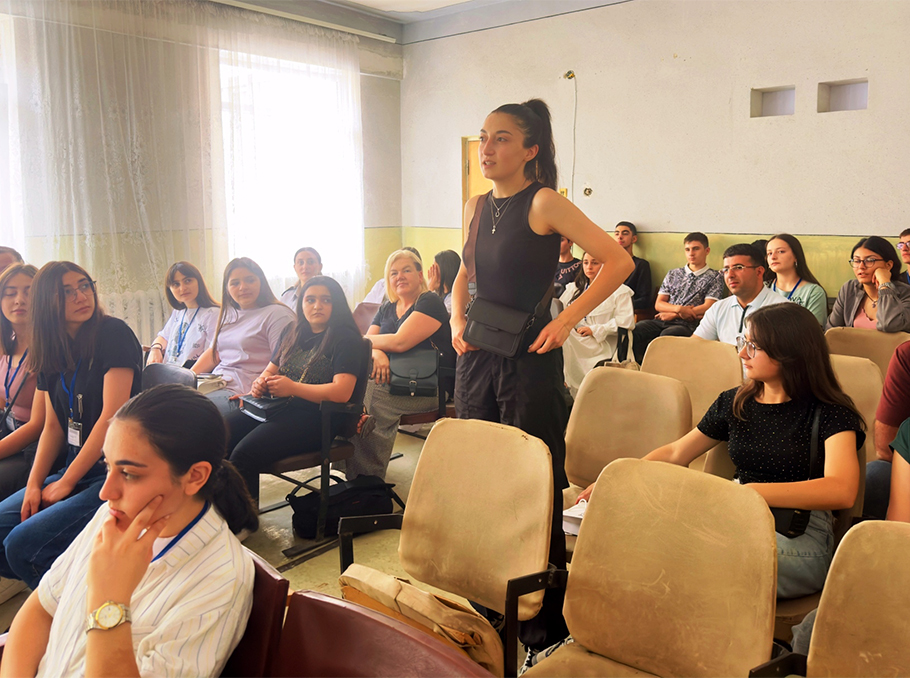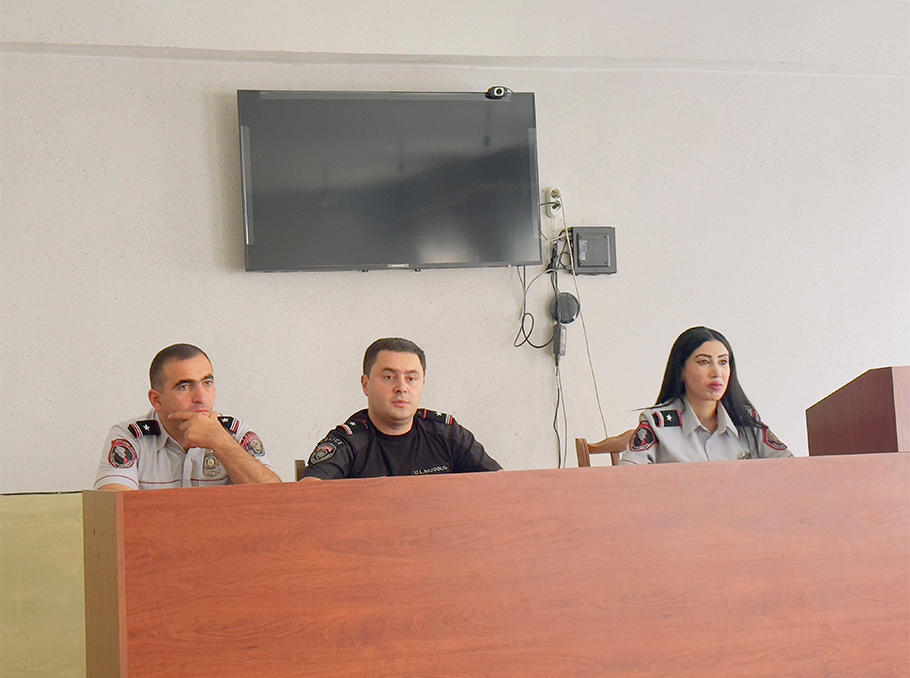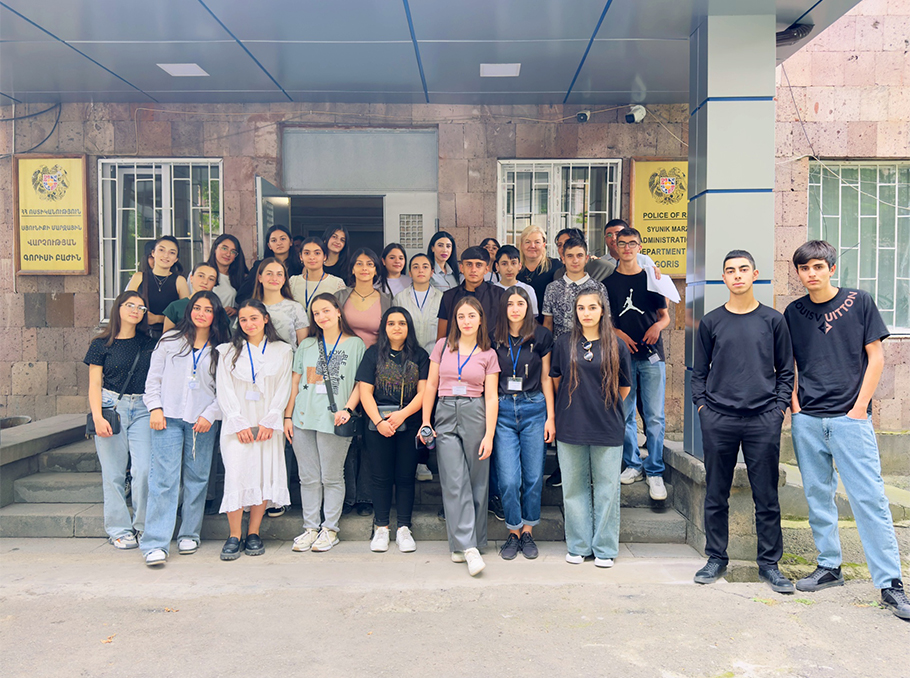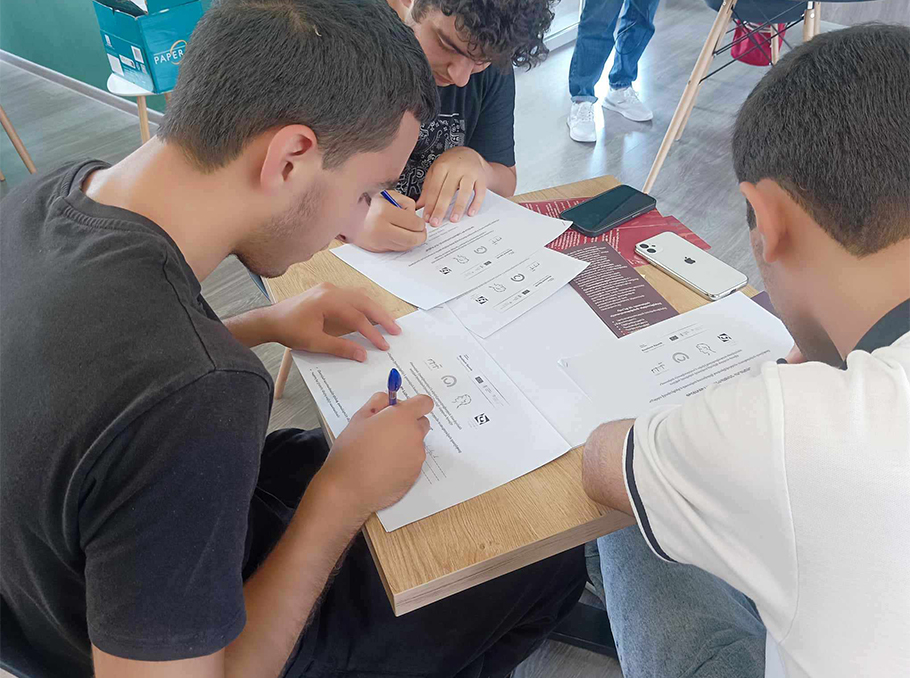“Court Monitoring and Fostering Legal Awareness for Active Citizenship in Syunik” project is implemented by the “Helsinki Association” human rights NGO within the framework of the “Resilient Syunik Team Europe” initiative, with co-financing from the Polish Development Cooperation of the Ministry of Foreign Affairs of the Republic of Poland and in cooperation with the Solidarity Fund PL.
The project, which launched in June 2024, aimed to educate the youth of the Syunik region –particularly in Kapan, Goris, Meghri, and Tatev – on topics such as human rights, fair trial, court operations, and anti-corruption processes. Additionally, the initiative sought to contribute to the formation of practice of collaboration with the judicial system and law enforcement agencies.
“The uniqueness of our project lies in its focus on the transfer of knowledge and experience, as well as formation of an individual. While Syunik is the birthplace of these young people, it is the homeland of all of us, and we must do everything we can to be strong and educated,” said Nina Karapetyants, president of “Helsinki Association” human rights NGO.
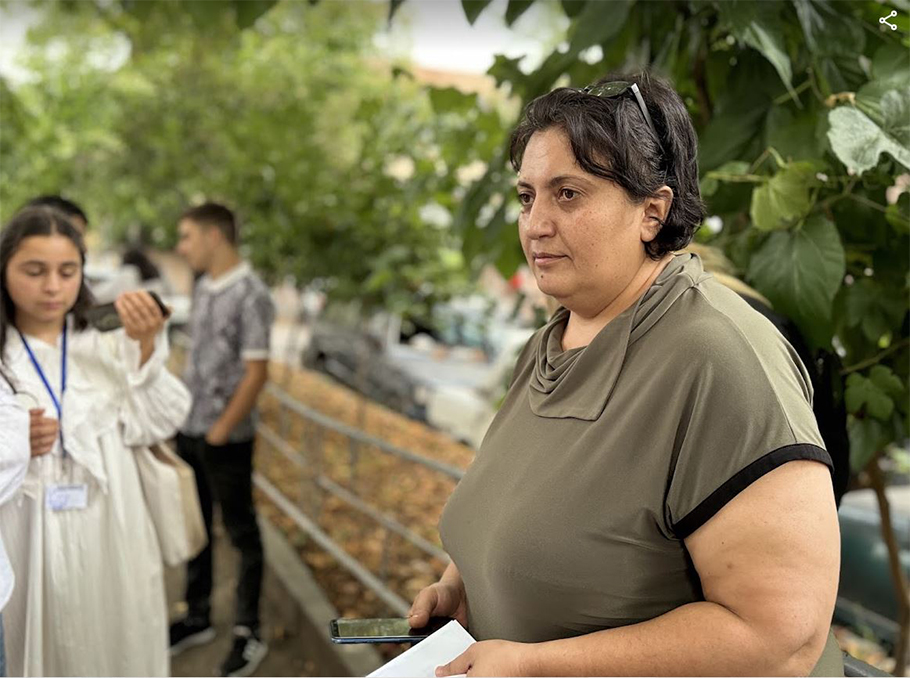 Nina Karapetyants
Nina Karapetyants Photo: Mediamax
Due to the sensitivity of the topic, the funding side initially had concerns about the level of interest among young people. However, their active involvement far exceeded expectations.
“One of the goals of the project is to encourage young people to actively participate in public life and to develop their skills in the field of human rights. The youth of Syunik were much more interested and involved in the project than in other regions. This is evidenced by the constant and increasing number of participants from the start to the end of the project. Since the region is now more vulnerable, the implementation of such a project is of great importance,” said Anna Radecka, representative of the Solidarity Fund PL, and the manager of the project.
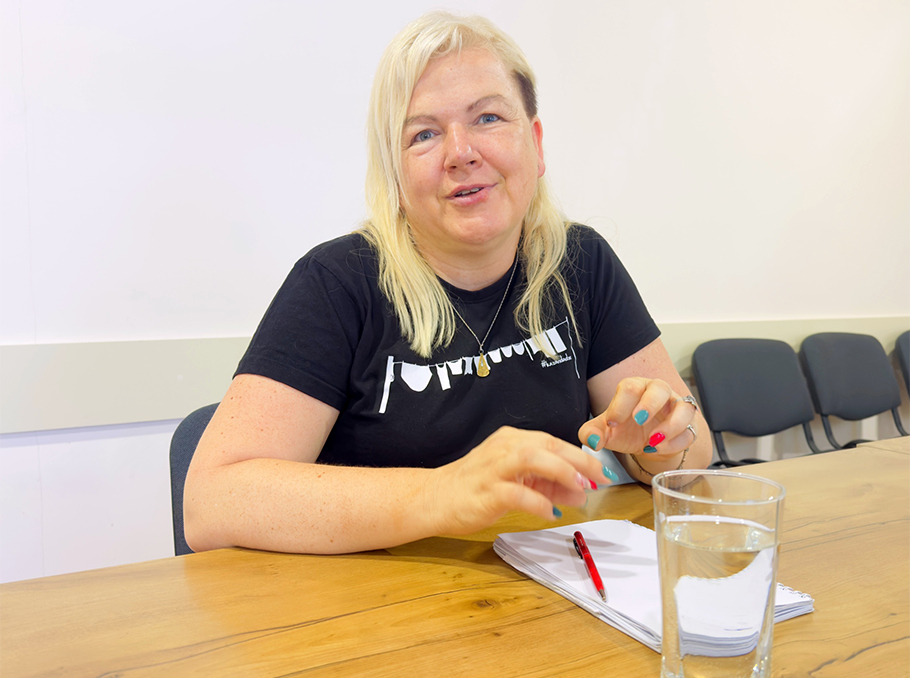 Anna Radecka
Anna RadeckaThe beneficiaries of the project were high school students and university students, selected with the support of the Education, Culture and Sports Department of the Syunik Governor’s Office. A total of 97 participants from Goris, Meghri, Kapan and Tatev communities are involved, 31 of whom are the beneficiaries of the previous project.
Two groups were formed: one for beginners and another for experienced. Training courses were organized for the groups, providing them with knowledge and skills on human rights, judicial system, fair trial, anti-corruption procedures, court monitoring and other related rights and responsibilities.
“Starting an educational process for young people is relatively new for our organization. We are a team of lawyers and human rights defenders who have been working professionally on a daily basis. However now that we are engaging with youth, our years of experience allow us to go beyond textbook knowledge and share real-life examples and cases we have personally witnessed. This makes the educational process more interactive and real,” said Nina Karapetyants.
Shaping a new way of thinking
In the second phase of the project, the trained youth visited local first-instance courts to monitor criminal court hearings. This helped the participants further develop their practical skills and knowledge, particularly in court monitoring. The project’s regional coordinators selected specific court sessions, considering factors such as the participants’ age, topic, etc. Although at the beginning visiting the court was psychologically difficult for young people, they overcame this difficulty over time.
“Before joining the project, I had a completely wrong idea and negative attitude towards court proceedings and the concept of a fair trial in general. However, after attending several times, I realized that justice is not just a word: it was important to see by what circumstances people’s fates are being decided. Then I advised many others to come and participate. Most of the participants are my friends. While the first year of the project helped me change my way of thinking, this year’s participation deepened my knowledge and experience,” said 15-year-old Stella Kocharyan.
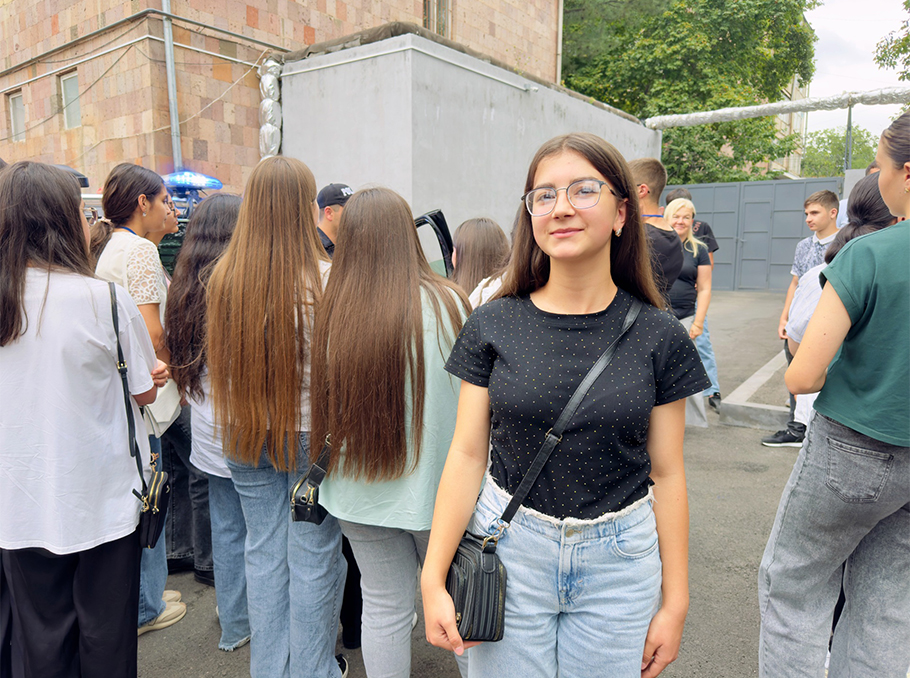 Stella Kocharyan
Stella Kocharyan “Helsinki Association” has implemented similar projects in Yerevan, Syunik, Shirak and Lori regions in previous years. Based on the experience gained and lessons learned, adjustments were made in the content of the project.
“With each new project, we try to introduce another key component. The justice system has different components, and focusing solely on the courts is not enough to fully understand it. Justice has a much broader context, therefore, engaging with all components, institutions, seeing the work from the inside is crucial for young people to form the general idea about it,” Nina Karapetyants noted, adding that “society, especially the youth, must understand that the police and the courts do not function separately - they are not separate units.”
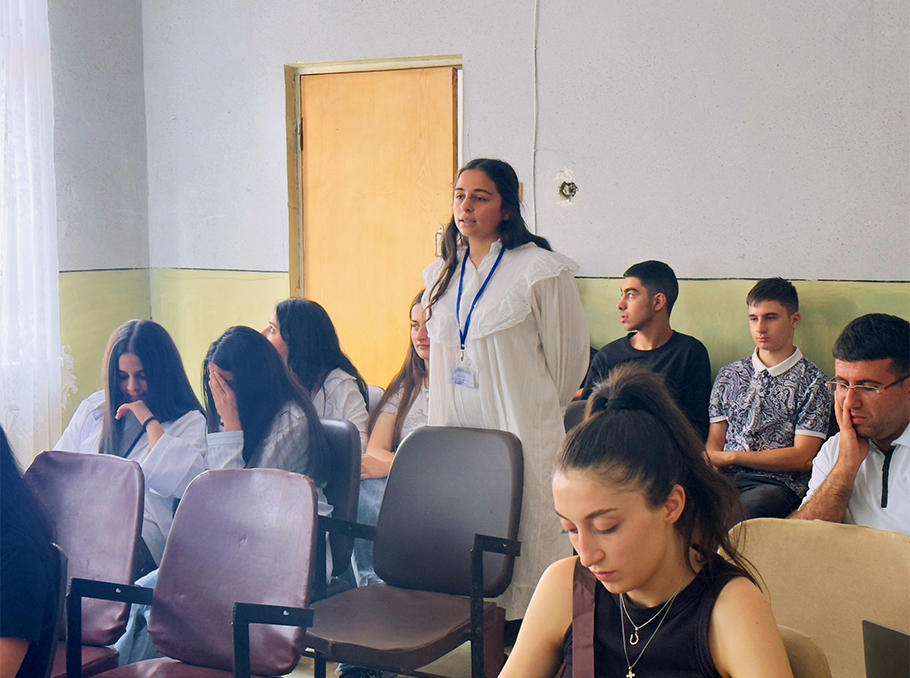
In addition to visiting the courts, this year’s participants also took a familiarization trip to the territorial departments of the Syunik Police. During the meetings, police officers introduced the young people to the structure of the police system, upcoming reforms and changes, and answered their questions. The participants also had the opportunity to familiarize themselves with the tools used by the patrol service.
According to Sargis Khachyan, deputy for operations at the Goris division of the Syunik Regional Department of the Ministry of Internal Affairs, such meetings help to break the stereotypes formed between the police and society. “They help young people build trust in the police and the legal system in general,” he said.
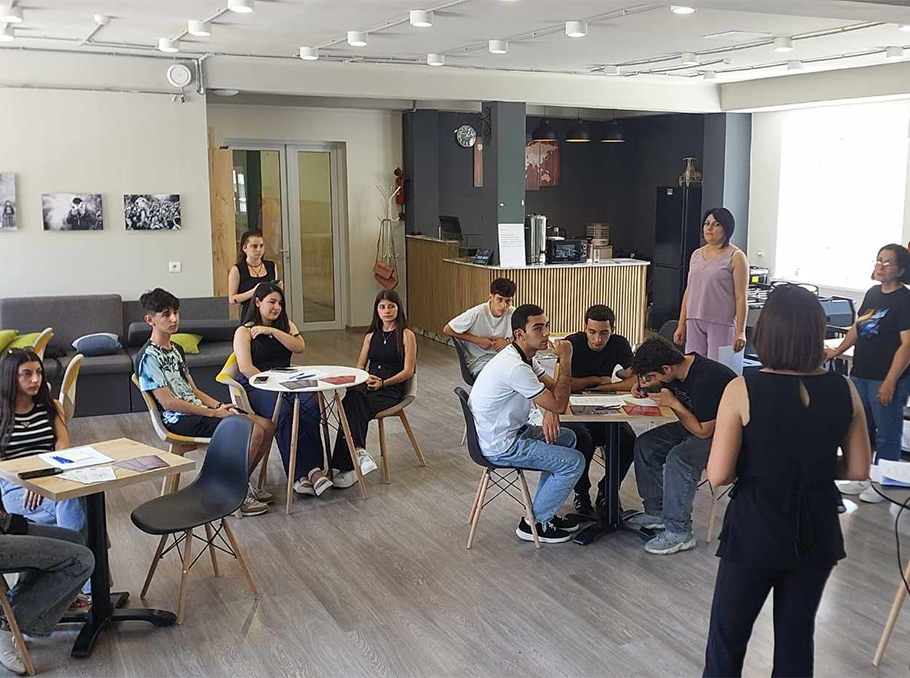
Photo: “Helsinki Association”
At the end of the project, based on the results obtained through the court monitoring, proposals for judicial system reforms are developed, a report is prepared for the presentation to the relevant bodies and the general public. While this report differs from the more specialized one prepared by the “Helsinki Association”, it forms an important cooperation between the new generation and the legal system.
During 2023-2024, 177 participants aged 14-18 from the Syunik region were engaged in the project. A total of 120 young people monitored over 300 court hearings related to criminal cases at the Kapan and Goris branches of the general court of first instance of Syunik.
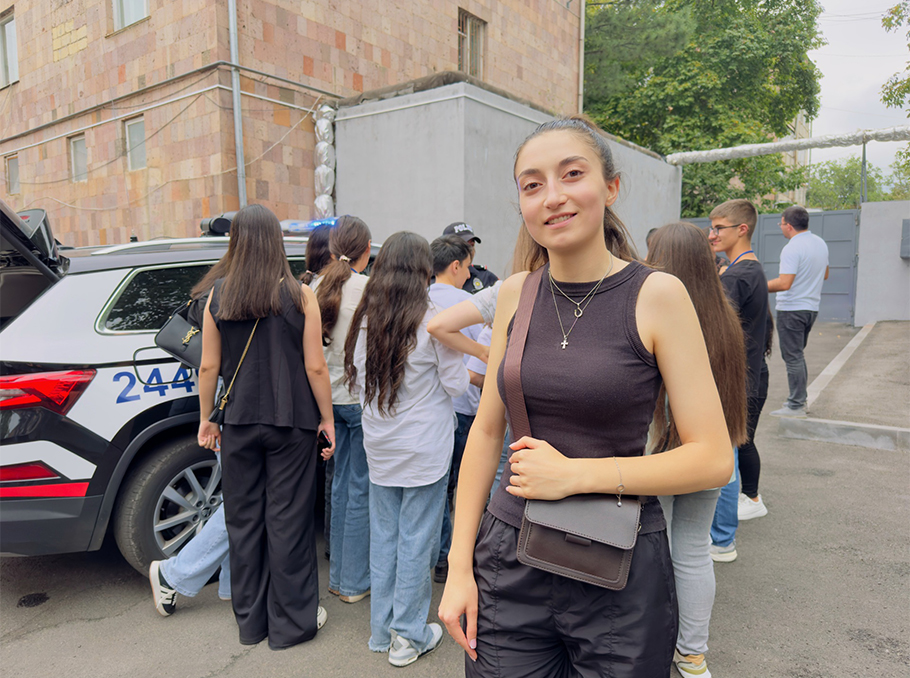 Elen Apunts
Elen Apunts For the second year, 18-year-old Elen Apunts participated in the courses organized within the project, as well as in monitoring court hearings. “This project gave me the opportunity to better understand the judicial system and human rights, as well as helped in professional orientation. I got familiarized with the system, employees and realized that I made the right choice,” said the first-year student of the Law Faculty at the French University in Armenia.
Anahit Baghdasaryan
“The Resilient Syunik Team Europe initiative is the joint undertaking of the European Union, the European Investment Bank, EU Member states - Austria, Czechia, Estonia, Finland, France, Germany, Lithuania, the Netherlands, Poland, Sweden, and Switzerland also joining as an external partner. The initiative aims to contribute to the sustainable socioeconomic development of the Syunik region.”
This article was published with the financial support of the European Union. Its content is the sole responsibility of Mediamax and does not necessarily reflect the views of the European Union and Austrian Development Agency.









